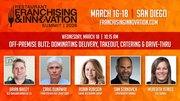Article
Food trucks provide one pillar for the expanding SAJJ Mediterranean brand
The SAJJ Mediterranean brand consists of four aspects: restaurants, food trucks, catering and online/delivery sales.
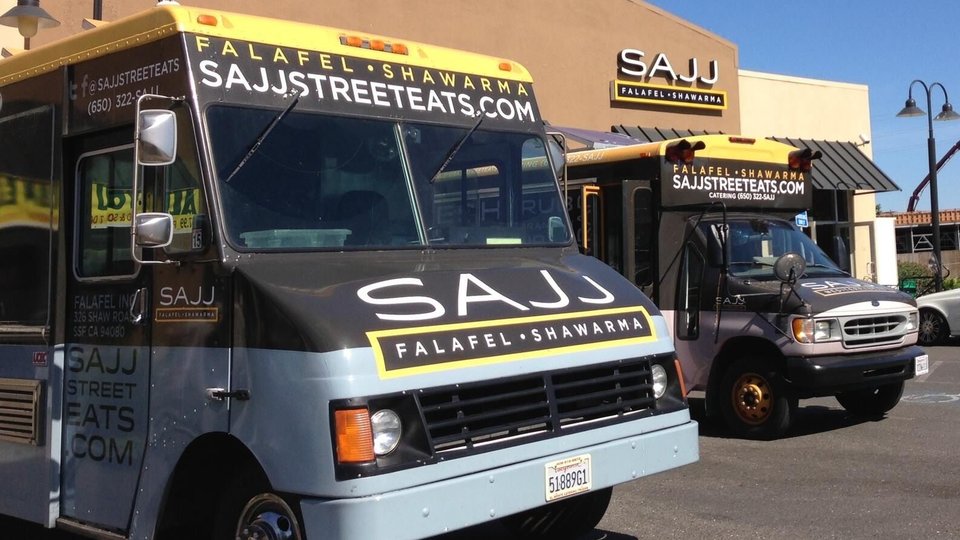
June 19, 2019 by Elliot Maras — Editor, Kiosk Marketplace & Vending Times
The goal for many food truck owners is to open a brick-and-mortar restaurant once they have established their brand. Conversely, many restaurants launch food trucks as a way to support their brand.
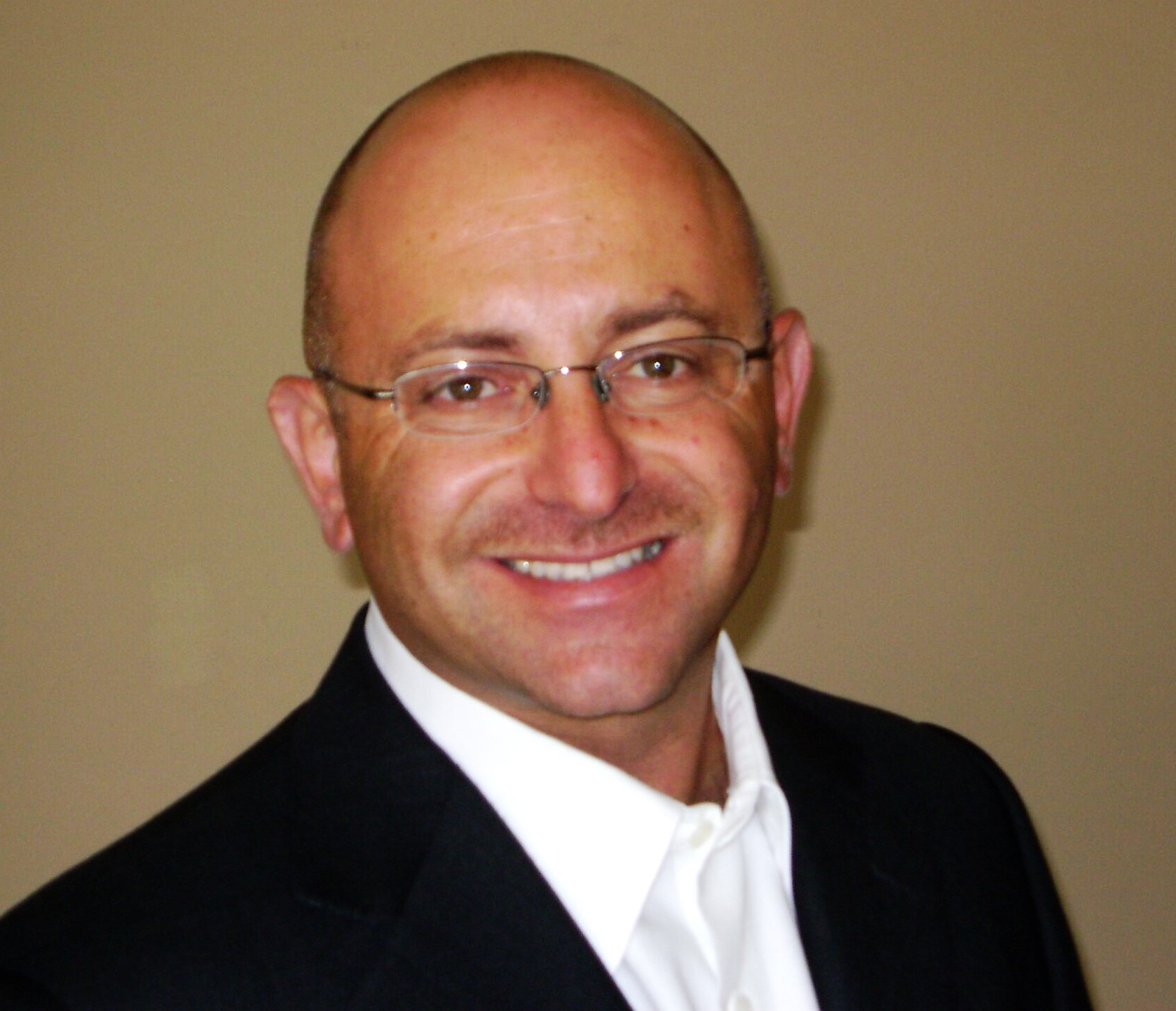 |
Zaid Ayoub became a successful entrepreneur before launching a foodservice business. |
Zaid Ayoub, founder of SAJJ Mediterranean, knew he wanted to operate both food trucks and restaurants when he decided to become a foodservice entrepreneur seven years ago. Today, he operates two food trucks and nine restaurants in California, with plans to expand to 20 restaurants by next year. From day one, he has had a multi-channel focus on his brand.
Ayoub's interest in becoming a foodservice entrepreneur was gradual. As a college student, he was aware of good Middle Eastern restaurants, but he felt there was a need for one that was more exceptional.
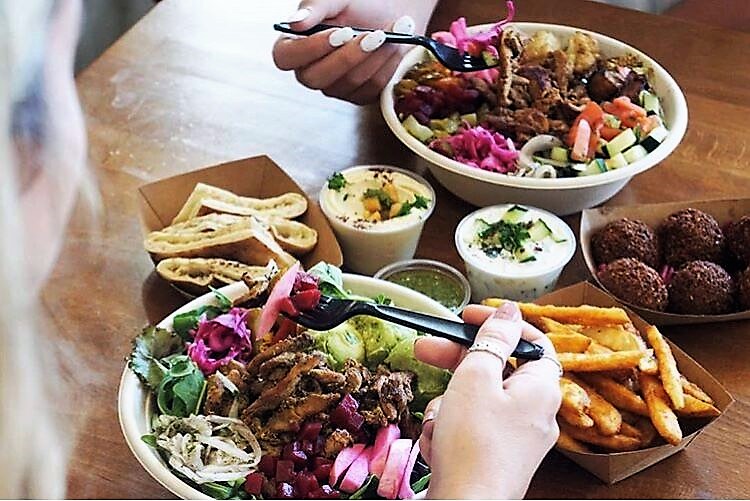 |
| Felafel and shawarma are staple menu items for both the food trucks and the restaurants. |
Entrepreneurship takes shape
After receiving his MBA in 1990 from Santa Clara University, he worked in semiconductor manufacturing, eventually launching his own semiconductor engineering firm, Dimensions Consulting Inc.
Some time after he sold his business in 2006, a friend in the food business suggested he consider starting his own restaurant. He researched the restaurant business and realized food trucks were taking off in Southern California.
By 2012, the entrepreneur had a business plan that included one food truck and three brick-and-mortar restaurants. The following year, he launched both his first food truck and his first restaurant.
Dual investments: food truck and restaurant
He purchased a used truck, selected the appliances and hired a food truck builder who was familiar with the local government food truck requirements to install the appliances. The investment was around $100,000.
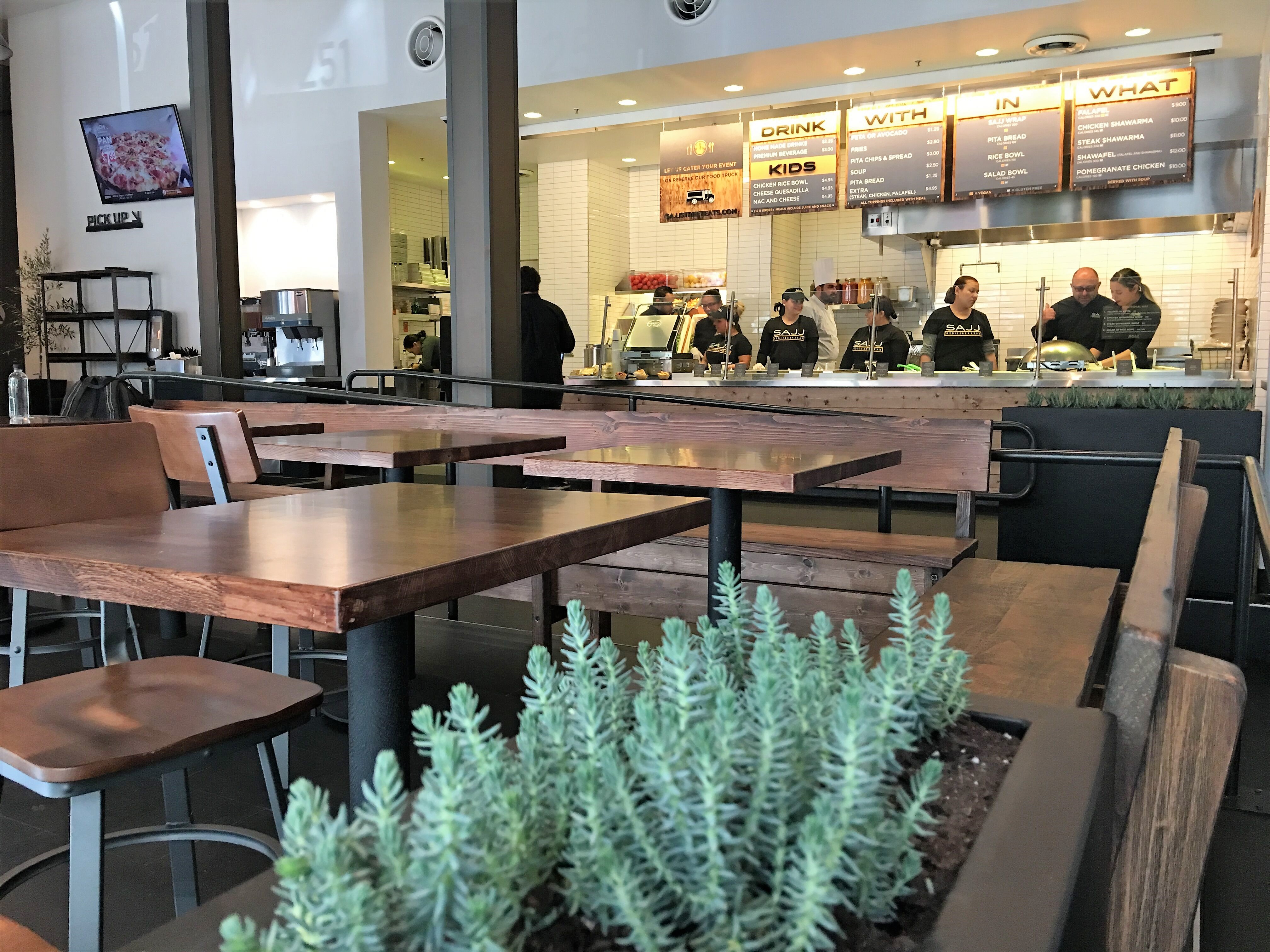 |
| Mediterranean Grill restaurants have helped build the company's catering business and have expanded into online ordering and delivery. |
The first brick and mortar, located in Menlo Park, was "a few hundred thousand," he said.
He hired his first employees for both the truck and the restaurant with the idea of letting them alternate them between the two. There are two or three dedicated truck employees, with one designated supervisor. The 10 to 15 restaurant employees, from the brick-and-mortar side, fill in on the truck as needed, which helps the company optimize its labor.
The restaurant and the truck both feature the same menu items — falafel, shawarma, hummus and other Middle Eastern fare — but the truck menu includes meal combinations as opposed to allowing the customer to build the meal themselves, as in the restaurant.
Move to a commissary
The restaurant initially prepared the food for the truck, Ayoub said, but he switched to using a commissary kitchen within the first year. He said the commissary, also located in Menlo Park, better ensures consistent food quality for the truck. "We wanted to have food consistency across all different platforms, and quality as well," he said. Produce is sourced from local farms, halal meat from distributors and bread from local bakers.
Ayoub credits much of his success to executive chef Louy Alhindi and Carlos Segura, the operations manager.
Shortly after opening the kitchen commissary, he moved the truck from a truck stop in South San Francisco to the same Menlo Park facility.
Early partnerships: Off the grid and movable feast
The truck initially focused on private catering events for businesses. In time, Ayoub began working with food truck event promoters Off the Grid and Movable Feast. The promoters assist in making sure the trucks have the proper local permits, and they played an important role in the company's growth in its first three years, Ayoub said.
"They understand the business very well," he said for the event promoters. "Working with them was really great."
The company never focused on regular daily street locations as some trucks do, Ayoub said, although they do attend festivals.
While the original plan was to have three brick-and-mortars and one truck, the truck's success led to the launch of a second truck within the first year.
"The return on equity on food trucks is by far better than any brick and mortar," Ayoub said. "We did hundreds of thousands per truck. It was good. It was significant." In the first two years, most of the company's sales came from the two food trucks.
The focus shifts
"Since then, the market has changed," he said, mainly in that it has become more saturated and competitive. "We shifted from a truck focus to a more comprehensive brand."
In Ayoub's mind, the brand consists of four aspects: restaurants, food trucks, catering and online order/delivery sales.
"We're really using all four all the time," he said. "We're trying to build the brand as a whole. When we get all of these channels working together, it's "much, much bigger" than being focused on only one channel.
"The trucks are really important," he said. But where the trucks bring in a few hundred thousand dollars per year, the restaurants are exceeding $1 million and $1.5 million in sales.
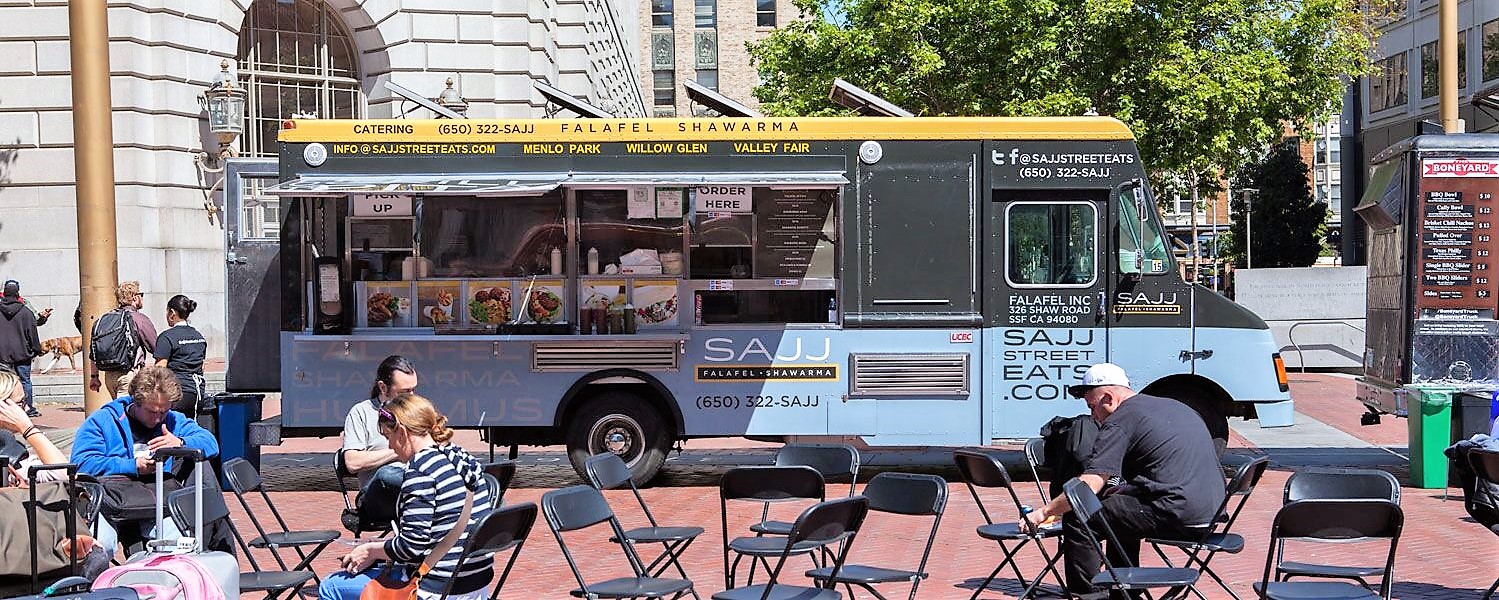 |
Food trucks serve both special events and catering. |
The company, which currently has restaurants in San Francisco, San Jose, Menlo Park, Mountain View, Sunnyvale, Rancho Santa Margarita and Irvine, is on track to have 20 restaurants by the end of 2020 throughout the state, he said.
Ayoub's corporate staff includes full-time employees for marketing, public relations and in-store promotions, and he is considering adding a full-time salesperson. With a staff of around 100, the company uses Craigslist to recruit people in addition to other online forums, but gets most of its employees through referrals.
Ayoub believes the company could grow to a few hundred units, but he does not want to grow too fast since a lot of preparation is required before opening a restaurant. It is necessary to have the right infrastructure and personnel in place before opening.
The company's online ordering and catering divisions are growing the fastest, he said, although all divisions are growing.
While there is no debt at the present time, Ayoub is not opposed to raising funds depending on how fast he wants to growth the business, even though he describes his approach to growing the business as conservative.
If he had to do it all over again, he said he would have executed more slowly and focused on finding the right people. "It took us a couple of years to figure that out," he said. "Our vision is happy and healthy people."
Photos courtesy of SAJJ Mediterranean.
About Elliot Maras
Elliot Maras is the editor of Kiosk Marketplace and Vending Times. He brings three decades covering unattended retail and commercial foodservice.
 ChatGPT
ChatGPT Grok
Grok Perplexity
Perplexity Claude
Claude
